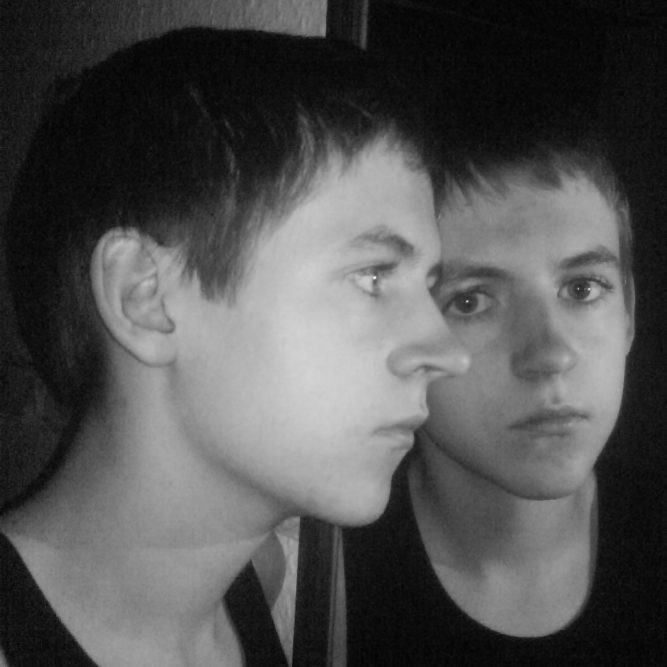Your Teen and Body – Dysmorphic Disorder: Christian Counseling for Teens
Christian Counselor Seattle
 When you’re the parent of a teen who struggles with body image, the saying that “knowledge is power” can be radically true when it comes to getting your teen appropriate help. In one of my earlier articles I talked through the defining features and warning signs of the three most well-known eating disorders: Anorexia, Bulimia, and Binge-Eating Disorder. In this post, I want to focus on a body-image disorder that is less talked about, yet incredibly important for parents of teens to be aware of, namely
When you’re the parent of a teen who struggles with body image, the saying that “knowledge is power” can be radically true when it comes to getting your teen appropriate help. In one of my earlier articles I talked through the defining features and warning signs of the three most well-known eating disorders: Anorexia, Bulimia, and Binge-Eating Disorder. In this post, I want to focus on a body-image disorder that is less talked about, yet incredibly important for parents of teens to be aware of, namelyBody Dysmorphic Disorder or BDD.
What is Body Dysmorphic Disorder?
BDD is a disorder that often begins in the teen years and is characterized by a preoccupation with a perceived flaw in your body. The key word in that sentence is “perceived,” because people with BDD tend to focus on flaws that are either incredibly minor or completely imperceptible to others. Individuals with BDD may be extremely preoccupied with the shape of their nose, the length of their arms, or the color of their hair. By itself, BDD is not considered an eating disorder, however preoccupation with weight can occur in BDD, and both an eating disorder and BDD can be present at the same time.
What Makes BDD Different From Normal Body Image Concerns?
 When reading the paragraph above it may seem that this disorder describes most teens – after all the teen years are known for heightened sensitivity to appearance. What sets BDD apart from a teen’s “normal” discontent with appearance is mostly a matter of degree as seen in each of the following areas:
When reading the paragraph above it may seem that this disorder describes most teens – after all the teen years are known for heightened sensitivity to appearance. What sets BDD apart from a teen’s “normal” discontent with appearance is mostly a matter of degree as seen in each of the following areas:
- Excessive Time Spent Worrying About Appearance
Teens without BDD might spend anywhere from a few minutes to an hour getting ready for school, and once ready they can go through their day without being constantly distracted by or anxious about their appearance. In contrast, teens with BDD spend a bare minimum of an hour a day, and usually spend several hours a day, worrying about and attempting to hide or fix their perceived flaw. This often looks like an excessive amount of time spent getting ready, changing outfits, perfecting make-up, checking the mirror, and comparing their body to others. - Obsessive Concern with One’s Body
BDD is categorized as an OCD-related disorder and can even be thought of as a body-focused OCD. Part of the reason for this categorization is that individuals with BDD suffer from repeated, intrusive thoughts (obsessions) regarding the perceived flaw in their body, much like the thoughts of someone with obsessive-compulsive disorder. These thoughts are extremely difficult to get rid of or to ignore. - Compulsive Behaviors
Compulsions are repetitive behaviors that are hard for a person to resist and that are used to help temporarily ease obsessive thoughts. In BDD, compulsions can appear as a number of different behaviors, including constantly checking your appearance in the mirror, skin-picking, body-pinching, hair brushing, and asking for reassurance about your appearance from others. Often these behaviors can take place without the person realizing that they are doing them (especially with behaviors such as skin-picking and body-pinching). - Interference with Life: Teens with normal levels of body discontent can still go about their daily lives without too much interference from their body concerns. For someone with BDD, however, the extreme body discomfort they experience can lead to a dramatic drop in their ability to engage in certain activities. For example, a teen with BDD may refuse to wear a swimsuit for fear of revealing her “flawed” stomach, preventing her from joining in any water-based activities. Someone else with BDD might insist on always wearing long sleeves to hide their arms, even in the hottest of weather. Over time, an individual with BDD may withdraw from more and more activities due to their anxiety about their appearance.
How is BDD Treated?
BDD is often treated with a combination of therapies that focus specifically on addressing unhelpful thoughts and behaviors, such as Cognitive Behavioral, Dialectical Behavior, and Acceptance and Commitment Therapies. In my experience it is also helpful to incorporate depth-oriented therapies that address underlying struggles with self-concept and interpersonal relationships. For some individuals, medications prescribed by an experienced psychiatrist can provide a significant jump-start to managing the intrusive, OCD-like thoughts that come with BDD.
Christian Counseling for Body Dysmorphic Disorder
If you’re concerned that your teen may be moving beyond “normal” anxiety about appearance to an unhealthy level of preoccupation, consider reaching out to a Christian counselor for support. A trained therapist can provide the necessary guidance, tools, and support to help your teen get back to their life.
Sources
American Psychiatric Association. (2013). Diagnostic and statistical manual of mental disorders (5th ed.). Arlington, VA: American Psychiatric Publishing.
Neziroglu, F., Khemlani-Patel, S., & Santos, M.T. (2012). Overcoming body dysmorphic disorder: A cognitive behavioral approach to reclaiming your life. Oakland, CA: New Harbinger Publications, Inc.
Photos
- Boy in Mirror, DSC01054, courtesy of H2006, morguefile.com
- Girl in Mirror, 110490533241, courtesy of mensatic, morguefile.com



